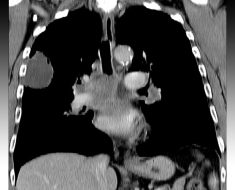As infections of the Omicron variant of SARS-CoV-2 — the virus that causes COVID-19 — continue to spread around the world, there have been reports that symptoms, in some respects, are different from those of Delta variant infections. Do symptoms really differ? What should you look out for?

On November 26, 2021, the World Health Organization (WHO) indicated a new SARS-CoV-2 variant of concern, which became known as Omicron.
The variant has caused concern among health authorities because it appears to be highly transmissible and likelier to reinfect.
There have also been some worries that Omicron can bypass the protection conferred by COVID-19 vaccines. Pfizer maintains that three doses of its mRNA vaccine are able to neutralize Omicron in laboratory experiments and that two doses may still prevent serious illness following infection with this variant.
For these reasons, countries worldwide have been taking various measures and precautions to reduce the spread of Omicron among their populations.
Nevertheless, within a world in constant motion, it may be impossible to stop it from spreading altogether. Some cause for optimism may be that various reports suggest that infections with this variant tend to cause milder symptoms than those with previous SARS-CoV-2 variants, such as Delta.
But how can someone tell if they have the Omicron infection? Are the symptoms the same as those of infections with previous variants?
What symptoms does Omicron cause?
The Centers for Disease Control and Prevention (CDC) lists the possible symptoms of a SARS-CoV-2 infection without specifying a variant. These are:
- fever or chills
- cough
- shortness of breath or difficulty breathing
- fatigue
- muscle or body aches
- headache
- new loss of taste or smell
- sore throat
- congestion or runny nose
- nausea or vomiting
- diarrhea
However, the CDC notes this list is not exhaustive, and people might experience different symptoms or combinations of symptoms. Furthermore, anecdotal reports on social media and other platforms claim that more specific combinations of symptoms characterize Omicron infections.
The Zoe COVID Study — conducted by researchers from health science company ZOE and King’s College London in the United Kingdom — uses data from over 4,000,000 participants.
The study’s recent analysis aimed to determine whether there were any differences between the most common symptoms of infection with the Delta variant and the most common symptoms of infection with Omicron.
They compared symptoms reported via the Zoe COVID Study app by U.K. participants who tested positive for COVID-19 in October 2021, when Delta was dominant in the U.K., with those who tested positive in December 2021 when Omicron had become the dominant variant.
Preliminary analysis indicated that the most commonly reported symptoms reported in both months were largely the same: a runny nose, headache, fatigue, sneezing, and a sore throat.
The findings suggest no strong differences in the most commonly experienced symptoms likely caused by the two SARS-CoV-2 variants.
However, according to this self-reported data, the ZOE scientists also note that loss of smell and taste appear to be less common among people recently testing positive for COVID-19.
Does it affect the lungs?
Medical News Today spoke to Dr. David M. Cutler, family physician at Saint John’s Physician Partners in Santa Monica, CA, to find out more about doctors’ advice regarding symptoms of an Omicron infection.
Dr. Cutler reiterated that symptoms vary and may not stand out in any particular way, compared to signs of infection with previous variants.
“The variety of symptoms seen with Omicron is the same as with other SARS-CoV-2 variants,” he said. “It seems quite notable that people affected by the same variant may experience quite different symptoms. Some get nasal stuffiness, others headache, sometimes body aches, and others get a sore throat.”
However, he noted, “[s]erious lung infections appear to be less likely with Omicron than [with] prior variants.”
That may be because, unlike other variants, Omicron preferentially infects the upper respiratory tract. This may also be why it seems to cause milder symptoms, according to WHO Incident Manager Abdi Mahamud.
“We are seeing more and more studies pointing out that Omicron is infecting the upper part of the body. Unlike the other ones, that could cause severe pneumonia,” he says, though cautions that more studies are necessary to confirm this.
How can you detect Omicron infections?
There have also been some anecdotal reports that lateral flow tests — also known as LFTs — may be less effective at detecting the presence of an Omicron infection.
Such tests, which people can do at home, are based on samples taken from a person’s nose, throat, or both and are meant to detect certain viral antigens, which indicate the presence of a viral infection.
According to Dr. Cutler, “[l]ateral flow tests are inherently inaccurate [because] [t]hey do not detect low levels of virus as well as PCR tests.”
RT-PCR tests, or PCR for short, are based on samples taken from both a person’s nose and throat. These samples, however, undergo laboratory testing, which can reveal whether SARS-CoV-2 specific genes are present. PCR tests are more sensitive and generally held as being more accurate.
Testing for genetic markers can also reveal, more specifically, the SARS-CoV-2 variant.
Some health agencies, such as the U.K. Health Security Agency (UKHSA), have nevertheless declared that, when used correctly, LFTs should detect infections with any SARS-CoV-2 variant in most cases.
A laboratory evaluation of lateral flow devices currently in use in the U.K by the UKHSA also suggests that LFTs detect Omicron as effectively as previous variants.
How can you treat a mild Omicron infection?
What happens if you become infected with the Omicron variant, and symptoms are mild enough not to require hospitalized care? How can you treat a mild infection at home?
“There are no specific home non-prescription drug remedies for preventing or treating [COVID-19],” Dr. Cutler noted.
The best remedies are similar to those you might use to treat mild flu symptoms or a cold:
“Recommended treatment is directed at the symptoms: stay hydrated, rested, and well-nourished. Take acetaminophen or ibuprofen to relieve headache, body aches, or fever. Avoid unproven remedies like hydroxychloroquine, ivermectin, zinc, and vitamin D, which have no known value and can cause adverse effects.”
– Dr. David M. Cutler
Tips for prevention
As they say, though, prevention is better than cure, so taking measures to protect ourselves and our loved ones from becoming infected with Omicron or any other SARS-CoV-2 variant is the best approach.
“The best method to prevent infection with any SARS-CoV-2 variant is a multiple technique approach,” explained Dr. Cutler. “I like to call this a ‘Swiss cheese’ approach.”
“[J]ust like you need multiple layers of Swiss cheese so that you can’t see any ham through the cheese holes in a sandwich, you need multiple types of protection to prevent [COVID-19]. No one protective technique is 100% effective. Vaccines, masks, distancing, ventilation, and avoiding ill or unvaccinated people are all important and effective to prevent you from getting [an] infection. And isolating when you are infected is critical in preventing you from spreading [the virus] to others.”
– David M. Cutler
For live updates on the latest developments regarding COVID-19, click here.
Source: Read Full Article





